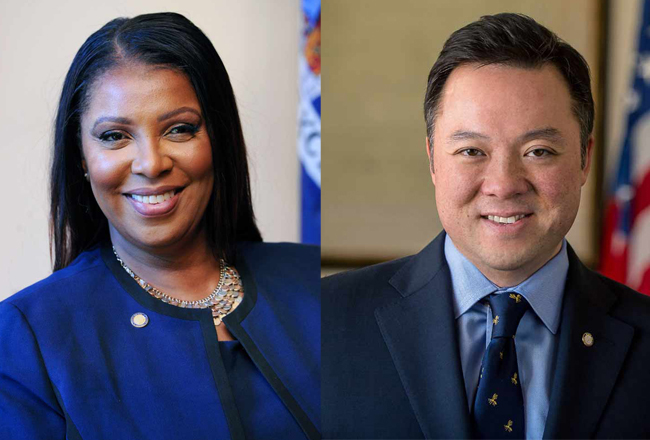Connecticut Attorney General William Tong and his New York counterpart Letitia James are part of a coalition of 23 attorneys general who filed an amicus brief with the U.S. Supreme Court seeking the continuation of an order by the Centers for Disease Control and Prevention (CDC) to ban evictions during the Covid-19 pandemic.

The brief was filed in relation to Alabama Assoc. of Realtors v. HHS, which questions the constitutionality of the CDC”™s eviction moratorium, which was put into place when the pandemic took root in this country. The attorneys general argue that lifting the moratorium is premature because the pandemic has yet to subside and a premature lifting of the ban would damage the ongoing economic recovery.
“Lifting of this stay would trigger a disastrous wave of sudden evictions across the country and in Connecticut. It would be highly unusual for the Supreme Court to step in at this juncture,” said Tong, who is leading the coalition with District of Columbia Attorney General Karl A. Racine.
“The CDC order is lawful, necessary to protect public health, and must remain in place. Relief is available for property owners so that families can remain safely in their homes during these unprecedented times without harm to landlords.”
The Supreme Court case is part of an ongoing effort by real estate organizations and coalitions to end eviction bans put in place during the pandemic. In April, a federal court dismissed a lawsuit brought by the Rent Stabilization Association of NYC against James that challenged the constitutionality of a state law that halted evictions during the pandemic.
“As the financial instability spurred by the coronavirus continues, it is imperative for the state to enforce laws that protect New Yorkers from unlawfully losing their homes,” said James earlier this year in connection with the Covid-19 Emergency Evictions and Foreclosure Prevention Act of 2020.
“My office remains willing and able to assist local sheriffs and law enforcement departments as they familiarize themselves with the new law, which they are charged with enforcing.”




















